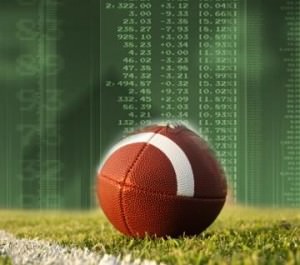
Most sports stats jobs require at least a bachelor’s degree. Popular sports statistics degrees include:
- Mathematics
- Sports Analytics
- Sports Management
Both online and on-campus degree programs are available.
While it can be challenging to find full-time work as a sports statistician, a part-time flexible schedule is attractive to statisticians who make a living in another field but have a passion for sports. The average sport statistician salary is $60,375/year for a full-time professional. Wages for part-time work vary significantly based on the type of work and qualifications needed. Let’s take a look at the types of sports statistics jobs available today to help you in your job search.
Related Resource: What Types of Jobs Are There In Sports Medicine?
Analyst for a Sports Team
Teams in a variety of sports are adding stats departments to their staffs as fast as possible. They’re scouring for analysts even in the depths of major investment firms, according to USA Today. Spotting a minor play-calling tendency that an opponent displays can be leveraged aggressively during in-game situations. The sports statistician assists the team by looking at the numbers to find a slight edge. They also track all relevant statistics during games and sports tournaments.
Many people credit Germany’s World Cup soccer win in 2014 to analytics, and it’s important to remember that every bit of data that went into that effort was handled by someone with a background in statistical analysis, according to The Wall Street Journal.
Salary Cap Analyst
With salary caps in place in most major sports leagues worldwide, there’s big pressure on teams to take an actuarial view of their rosters. Teams need to anticipate how much cap room they have to leave unspent in order to sign players to fill roles as injuries accumulate over the course of the season. Failing to properly manage their roster is considered by many observers to be the cause of the Pittsburgh Penguins end-of-season collapse in 2015.
Scouting
Every sports franchise on the planet is worried about picking the next big draft bust, but making judgments about the future performance of players can be challenging. While scouting will always be more art than science, teams are increasingly turning to the stats department for help in evaluating new talent, according to the Journal Sentinel. Teams are especially curious about using analytics to identify undrafted free agents who meet specific profiles of players who’ve been able to succeed in the past. They often ask sports statistics guys to comb through the data and help them find those players so they can send a scout to take a first-hand look.
Personal Trainers
It might seem weird to picture a sports statistician working directly with an individual athlete, but increasingly professionals are turning to analysts for advice to improve their workouts. Analysts often work with nutritionists to help athletes get the most out of every workout.
Sport statistic jobs are also available with individual teams. Teams use stats departments to help keep track of the health of their players. For example, the recent emergence of the Golden State Warriors in the NBA is largely credited to how the team tracks playing time for every man on the roster, according to The New York Times. The Warriors place an emphasis on making sure that their players aren’t being exhausted by excessive workloads. They rely upon a stats team to keep track of that information and relay it quickly to coaches and trainers in real time.
Statistical Recorder
A statistical recorder is a type of sports statistician who attends sporting events and keeps track of statistics in real time. According to the American Statistical Association section on sports, job responsibilities for this type of professional include:
- entering computer data
- preparing reports for the media
- preparing final statistical reports for league records
- serving as official scorekeeper
These sports statistician jobs are typically part-time with non-traditional hours.
Related Resource: Sports Law Analytics
Conclusion
This decade is likely just the beginning of the big data age in sports. For folks who want to pursue statistical jobs in sports, that means there’s a bright future ahead. As more teams attribute their success to choices grounded in analytics, stats professionals can expect to see higher demand for their services throughout the sporting world.
Related Articles:





